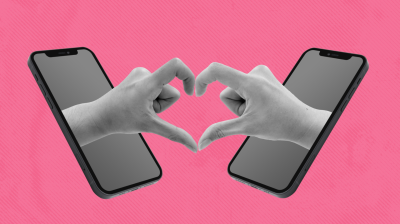How exam stress can effect eating disorders
Daniel shares this thoughts on how exam stress can affect eating habits.

TW // This article references eating disorders. Bodywhys helpline: 01 2107906 or [email protected]
Mental health is important to us, and if mental health is not important to you, then it should be. It is interesting that if we break our arms, we immediately seek help and get a cast and start to recover. But if we have bulimia; we are ashamed, afraid and hide the eating disorder from the world as we spiral deeper into a dark place, avoiding seeking help or recognising a problem.
An eating disorder is a complex, and even life-threatening condition that involves severe disturbances in eating behaviours in both men and women. Disorders, such as bulimia nervosa and anorexia nervosa, are dysfunctional methods of coping with emotional stress or part of another condition. Contrary to most understanding of an eating disorder, it does not primarily focus on food. Anyone can have an eating disorder but people can, and certainly do, recover. Yet there is no single cause for any eating disorder but a combination of biological, psychological and social or environmental factors that can create unwanted conditions for the development of an eating disorder.
I had a close family member who showed all the signs of having bulimia when I was young and it is only today that I understand what it was. I heard them after almost every meal vomit and denied it was an issue each time I asked. I remember it started during their exams, and continued during the immense stress of my family separating. However, that is their story to tell. I was too young to fully understand what an eating disorder was, and how easily anyone could develop a mental health condition or eating disorder. This was my first encounter with any form of mental health conditions.
Exam stress triggering eating disorders
Exams are known more for the stress they induce rather than the knowledge gained and tested upon. The Junior Cert, Leaving Cert, entry exams, college exams and even workplace exams each carry a level of stress that can trigger conditions for eating disorders. Education institutes and workplaces should be aware of mental health issues that exams can place on a person with support services firmly in place.
I am guilty of missing meals and I am a chronic snack eater and tea drinker when I study. With the stress of an exam, you may notice your appetite decrease or skipping meals to study. Like me, cups of tea and snacks might become your only source of food. Some people even exercise to relieve stress, but might end up overdoing it. These habits are common for the stressful studier, but a healthy balance must be made and recognition on an imbalance, or potential threats to mental health, should be acknowledged. This acknowledgement can come from you or from someone else.
If someone does identify weight loss that is appearing unhealthy or unhealthy habits in someone else, be the one to ask and willing to talk. Avoid confrontation and be understanding. If you recognise you may have an eating disorder then try to take charge of the situation. Think about what is happening and identify why it could be happening.
A healthy study schedule does not entail blocks of intense studying but encompasses regular meals, sleep and exercise or stretching the feet. People do and can recover from eating disorders, just like people do and can recover from any exam. There are support services from BodyWhys available nationwide for anyone seeking help. After the exams, there is no shame in seeking help. In fact, you are more powerful and honest as a person if you are okay to recognise how important your mental health is to you.
Feeling overwhelmed and want to talk to someone?
- Get anonymous support 24/7 with our text message support service
- Connect with a trained volunteer who will listen to you, and help you to move forward feeling better
- Whatsapp us now or free-text SPUNOUT to 50808 to begin.
- Find out more about our text message support service
If you are a customer of the 48 or An Post network or cannot get through using the ‘50808’ short code please text HELLO to 086 1800 280 (standard message rates may apply). Some smaller networks do not support short codes like ‘50808’.






